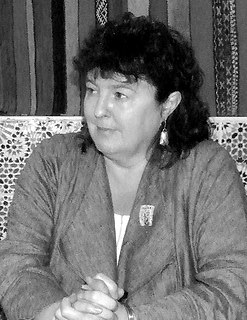Top 54 Quotes & Sayings by Carol Ann Duffy
Explore popular quotes and sayings by a British poet Carol Ann Duffy.
Last updated on November 21, 2024.
I grew up in a bookless house - my parents didn't read poetry, so if I hadn't had the chance to experience it at school I'd never have experienced it. But I loved English, and I was very lucky in that I had inspirational English teachers, Miss Scriven and Mr. Walker, and they liked us to learn poems by heart, which I found I loved doing.
Where I lived - winter and hard earth.I sat in my cold stone roomchoosing tough words, granite, flint,to break the ice. My broken heart -I tried that, but it skimmed,flat, over the frozen lake.She came from a long, long way,but I saw her at last, walking,my daughter, my girl, across the fields,In bare feet, bringing all spring's flowersto her mother's house. I swearthe air softened and warmed as she moved,the blue sky smiling, none too soon,with the small shy mouth of a new moon.























